Consent is an essential idea for your kids to understand from an early age. It helps protect them and it gets them used to enforcing healthy boundaries as they grow up. However, some family members might think that it’s ‘too early’ to teach them concepts like this. This can lead to a lot of friction down the line when people’s different ideas about parenting clash.
Case in point, one anonymous mom turned to the AITA online community for their verdict after she had a massive argument with her mother-in-law. The older woman openly criticized the OP’s take on consent in front of her kids. Read on for the full story and the varied responses from the internet.
Some people find it difficult to grasp the idea of asking for permission before hugging or kissing kids

Image credits: Juan Pablo Serrano Arenas (not the actual image)
One mom shared how she and her mother-in-law got into a huge argument over the idea of consent
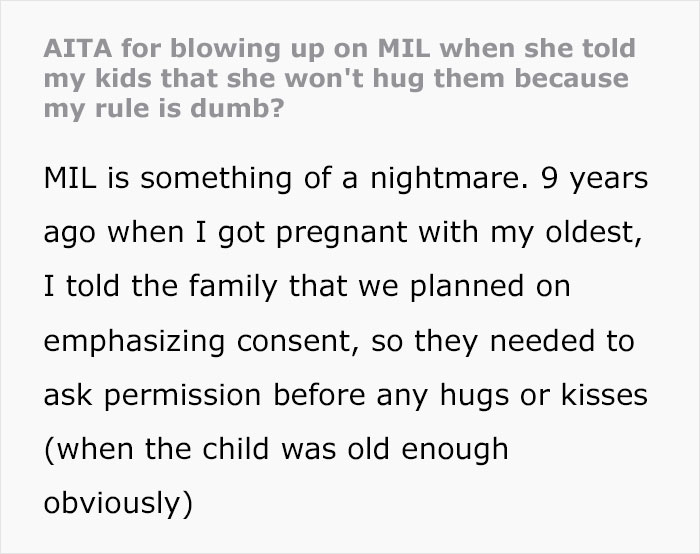




Image credits: RDNE Stock project (not the actual image)
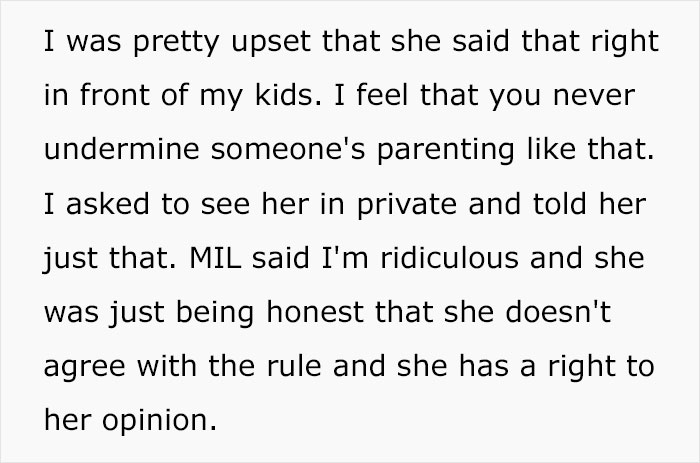
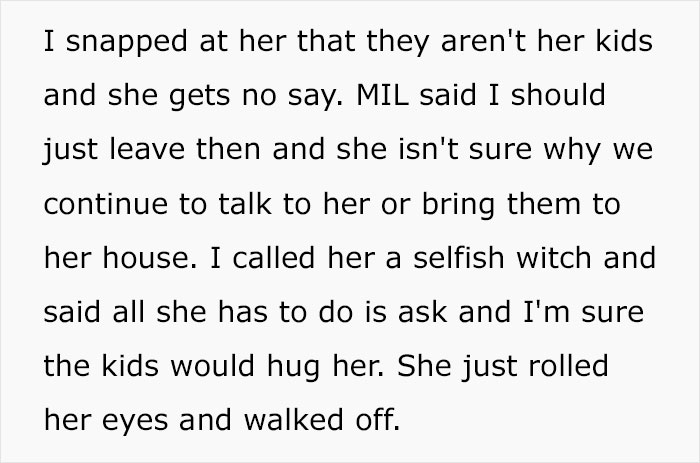
Image credits: AdDizzy2647
Physical contact is essential for healthy development, however, consent cannot be ignored
The idea of asking for consent before kissing or hugging a child is easy to understand for many young people because they’re constantly exposed to it on the internet and social media. However, some members of older generations find the concept extremely peculiar.
However, they sometimes focus on the wrong issue. The parents who want their kids to know about consent aren’t banning physical contact outright (which would be an actual mistake). They’re simply enforcing some easy-to-follow rules that take their children’s feelings and (growing) sense of autonomy into consideration.
It’s a way to empower kids so that they’re not forced into interactions that they might be uncomfortable with. Meanwhile, nobody’s denying that physical contact is important. It’s absolutely vital for kids’ development.
Research shows that kids who experience more physical contact tend to be more social and have better motor development than children who avoid human contact. On the flip side, a lack of touch can impair physical and psychological development.
However, this contact has to fit with the family’s parenting style. Some parents prioritize consent. Others do not. At the end of the day, the decision lies with the parents or guardians, not extended family members. The latter can offer their opinions, but they should not override the parents’ decisions.
Children’s safety and education advocate and author Jayneen Sanders previously explained to Bored Panda that it is never too early to speak to your children about consent. “If consent and respect are modeled to children from an early age, it is what they naturally come to expect. However, formal lessons in consent can begin from around the age of 2 years,” she told us during a previous interview.
Parents can introduce the idea of body boundaries to their kids from a very early age
The expert told us that family members who understand the importance of consent can conduct themselves respectfully. However, if they don’t know how to do this, the children’s guardians can give them some simple explanations.
“A child’s voice is important. Just like adults, they too have a body boundary and it is their right for it to be respected. Of course, if the child is non-verbal, we cannot ask for consent but we can explain what we are doing and why,” Sanders said.
“For example, ‘I just need to move your arms so I can put you into your seatbelt. My job is to keep you safe so that is why I need to move your arms into the straps.’ For non-verbal children, it is as simple as explaining what you are doing as you interact with them. As children begin to speak, offer them more choice. For example, ‘Would you like to lift your arms up or shall I do that for you? We need to put on your seatbelt to keep you safe.’”
According to the expert, parents can introduce the idea of ‘body boundaries’ to their kids when they’re 2 or 3 years old. Of course, every child and family is different, so the exact time when this happens will vary.
Sanders noted that parents can, at this point, talk to their kids about how they are free to say ‘no’ to hugs, kisses, or ‘tickling games.’ It’s also important that relatives and family friends are aware that if the kids say ‘no’ or ‘stop’ they should listen to them.
According to the children’s safety and education advocate, from the age of 3, parents can reinforce the concepts of consent and boundaries. They can then move on to formal education about feeling (un)safe, creating a safety network, how secrets and surprises are different, how private parts are private, what (un)safe touch is, and how to respond if touched inappropriately. This gives greater respect to kids’ autonomy and helps protect them as they grow.
Many internet users thought that the mom did nothing wrong by enforcing her rules on consent with her MIL
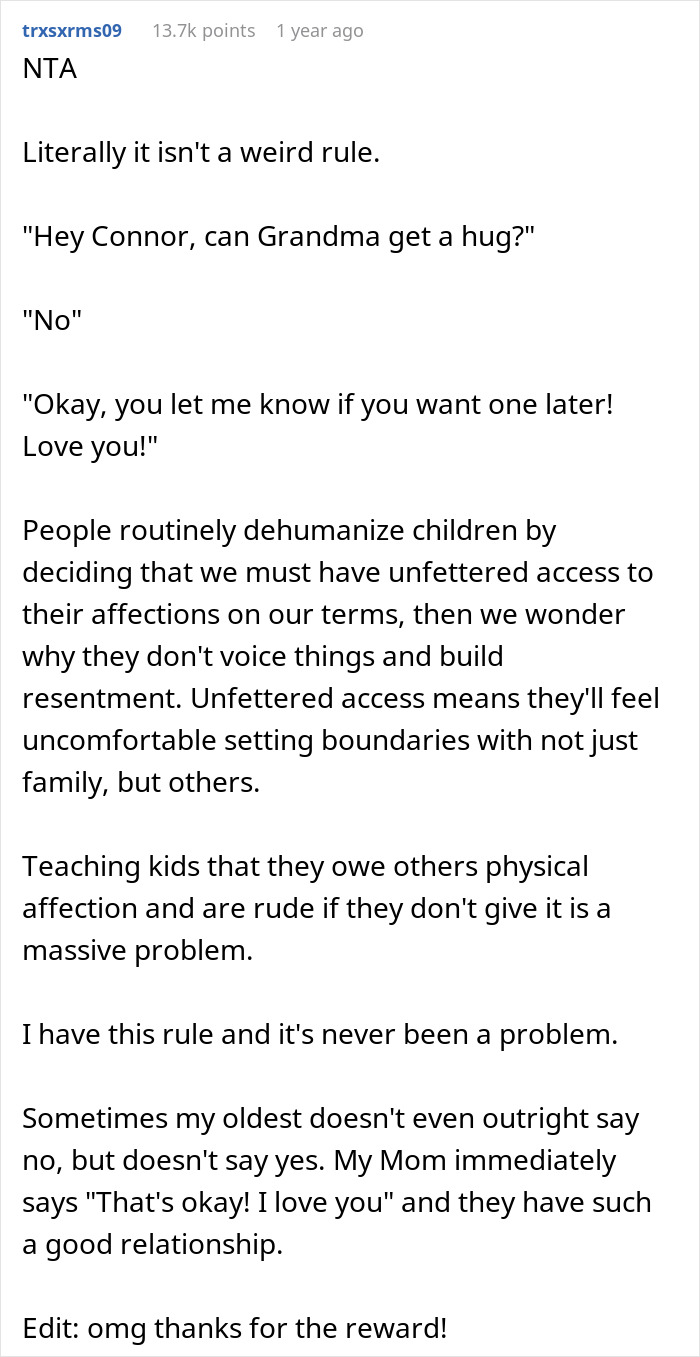
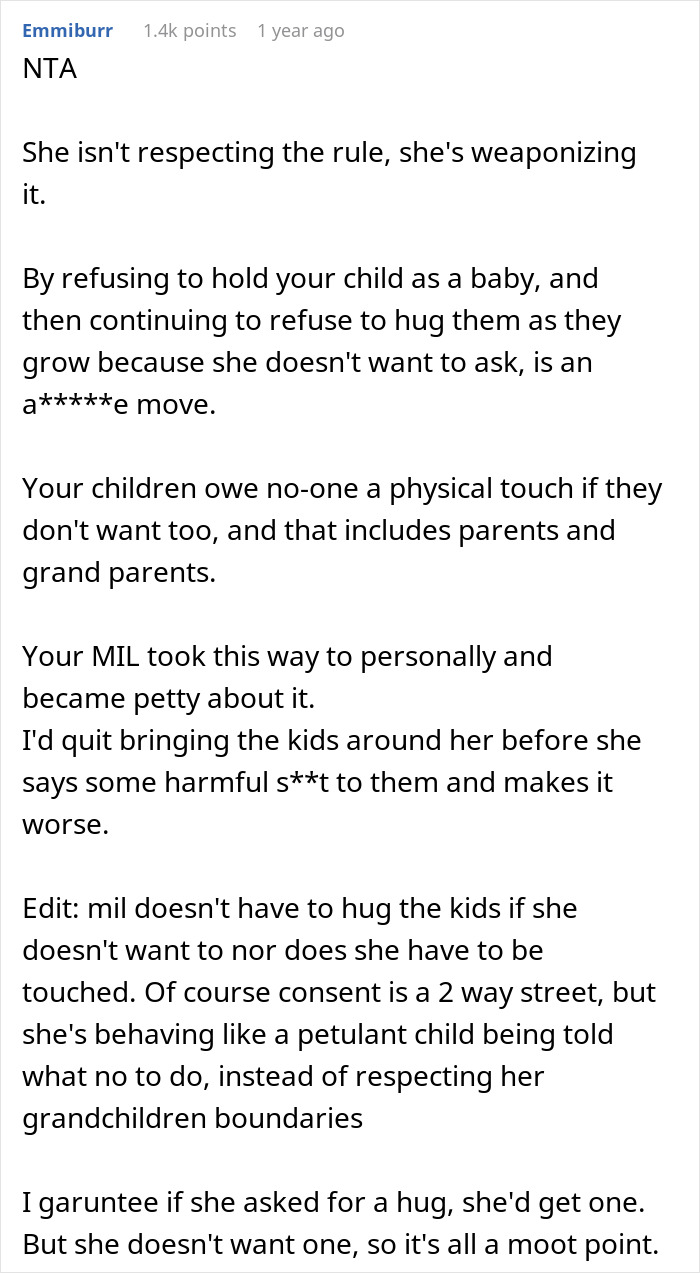


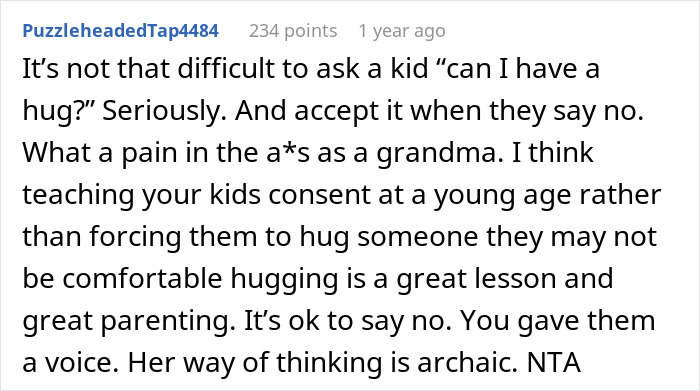
However, some readers thought that the mom could have handled the entire situation differently
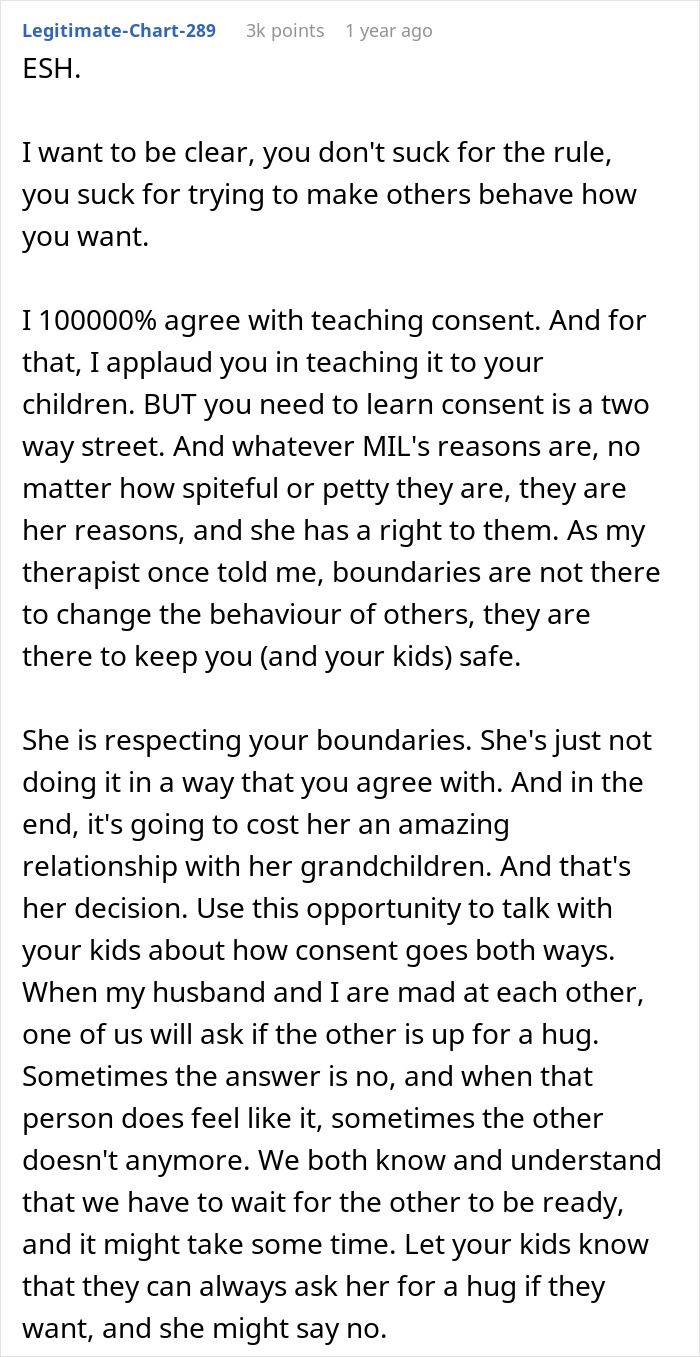
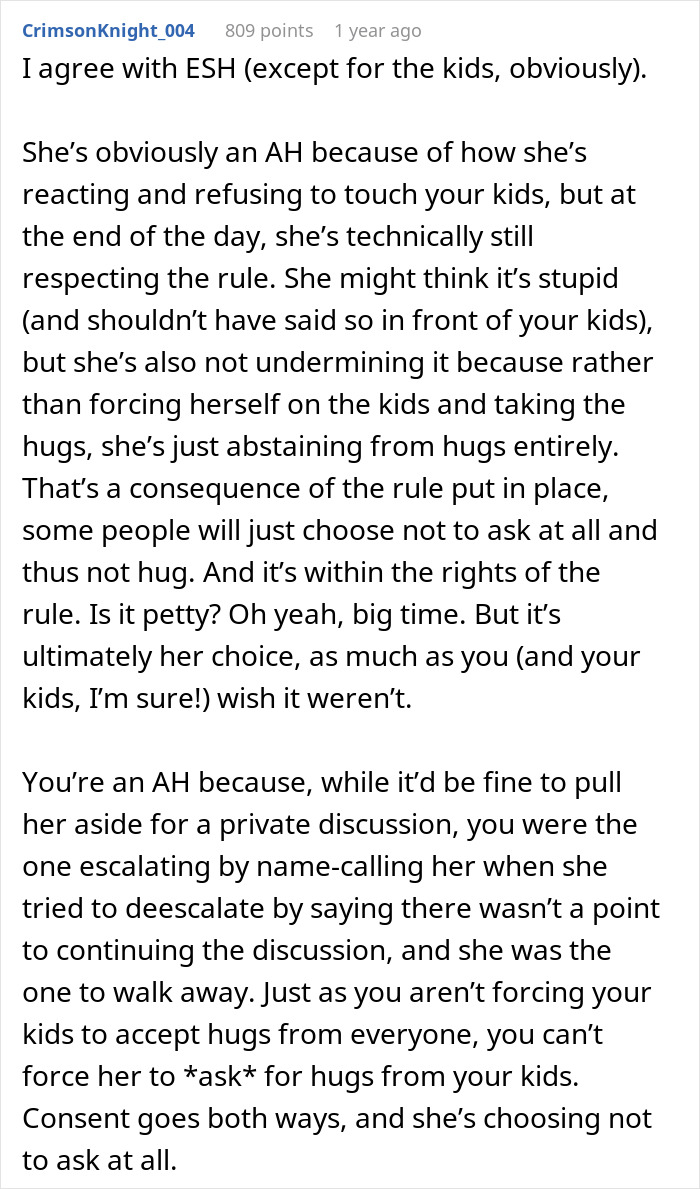

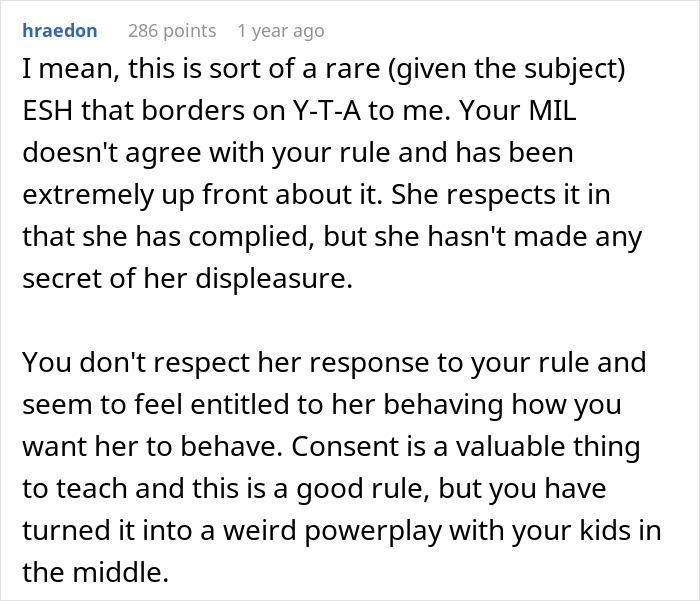
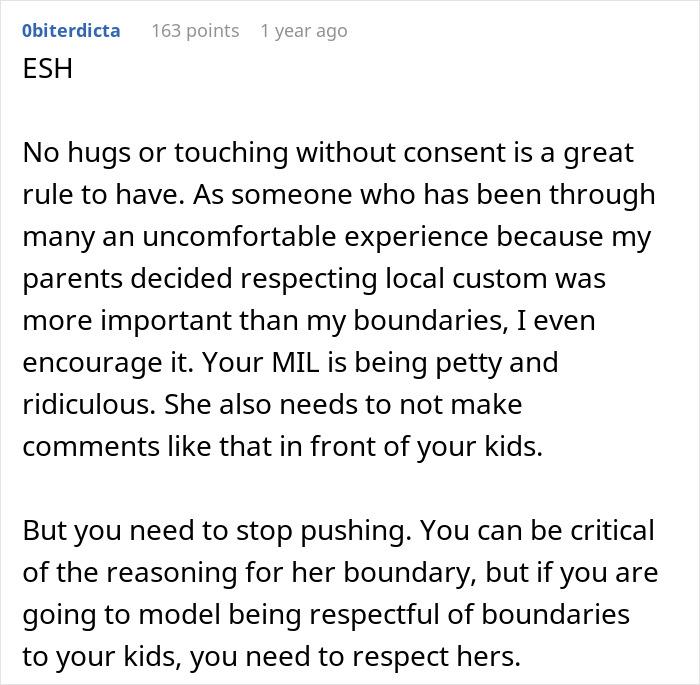
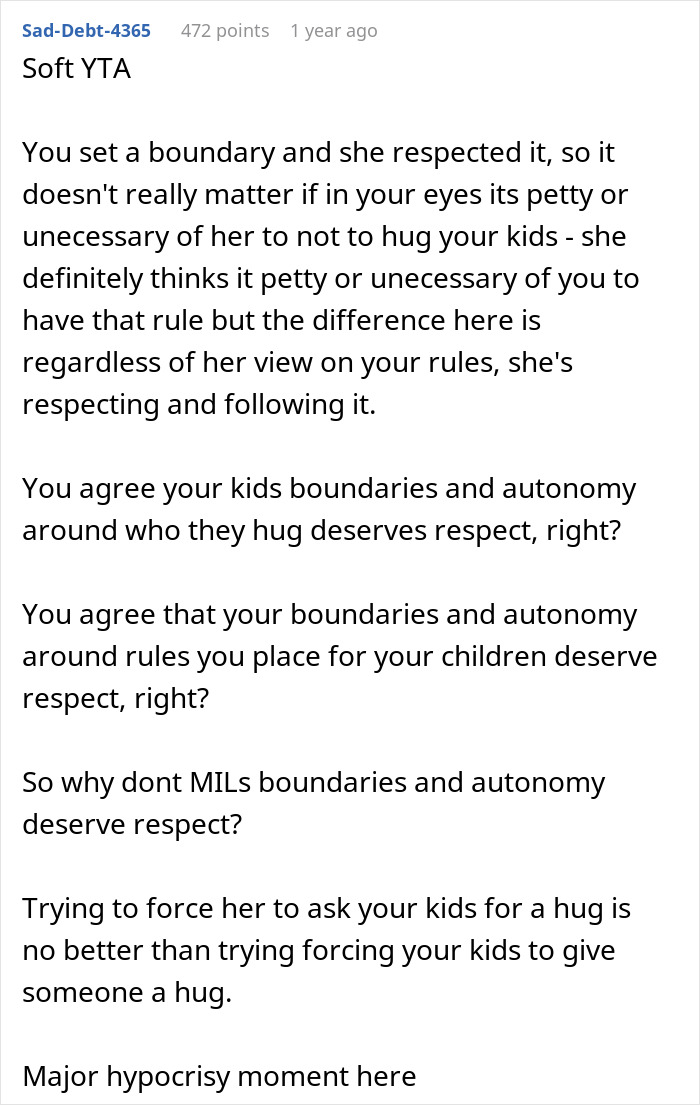
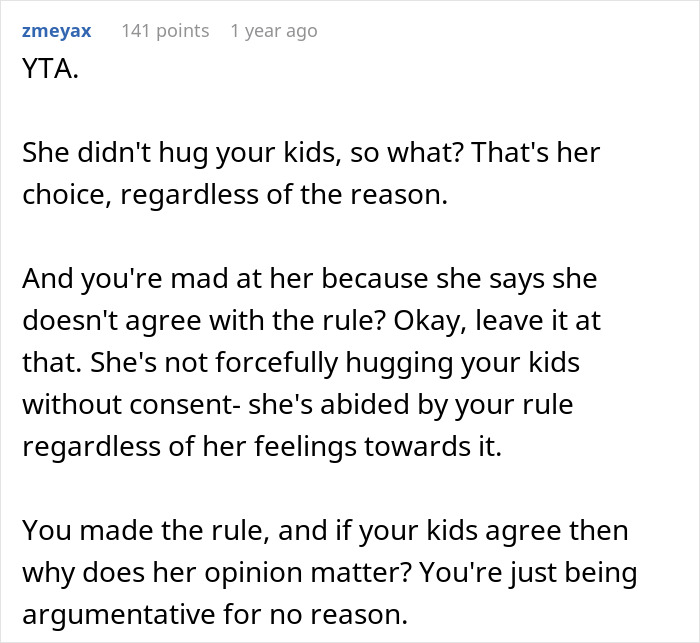
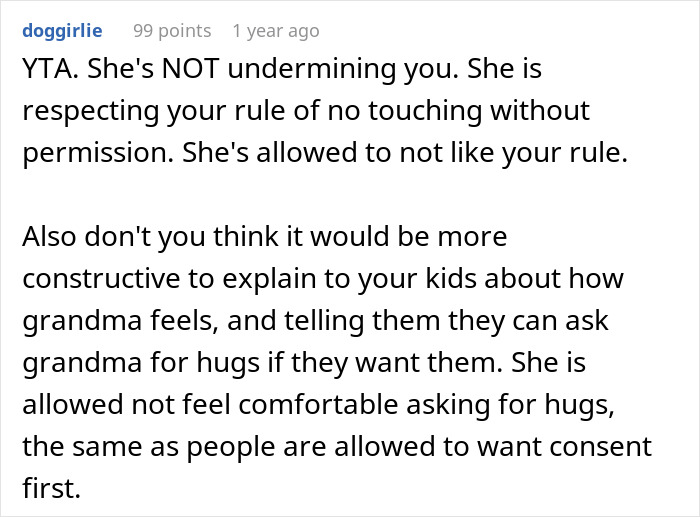












 English (US) ·
English (US) ·